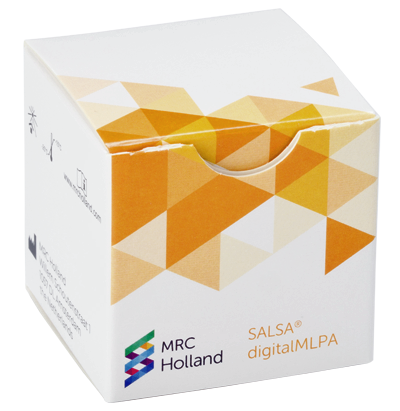P101 STK11

SALSA MLPA Probemix P101 STK11 detects copy number variations in the STK11 gene.

Contents: 27 MLPA probes, including 12 probes for STK11 and 3 probes for genes in the region upstream of STK11.

Tissue: genomic DNA isolated from human peripheral whole blood.

Application: Peutz-Jeghers syndrome (PJS).

IVDR certified for in vitro diagnostic (IVD) use.

